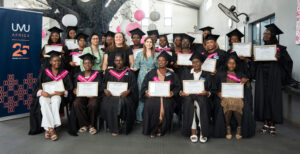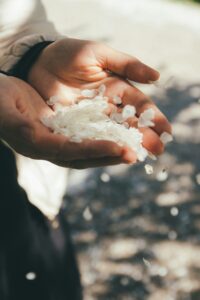Press release
After months of collaboration between the NGEAC (National Genetic Export Advisory Committee), a subcommittee of the Red Meat Producers’ Organisation (RPO) and the Directorate of Animal Health within the National Department of Agriculture (NDA), there is great excitement among stud breeders over the recent successful export of in vivo cattle embryos to Paraguay.
Import protocols for the export of highly sought-after South African genetic material of various large-and small-stock breeds were withdrawn by most countries following the nationwide outbreak of foot-and-mouth disease (FMD) in 2021. However, South African cattle breeders are optimistic again after the NDA succeeded in negotiating animal health certificates for the export of cattle embryos to Paraguay with their counterparts at SENACSA, Paraguay’s National Service for Animal Quality and Health.
Exploratory visit
In May 2023, a group of Bonsmara breeders from Paraguay, in collaboration with Bella Allianza Agronegocios, visited several Bonsmara breeders and embryo centres in South Africa. The visitors undertook a meticulous selection of donor cows for the improvement of their own herds in Paraguay.
Each donor cow and bull were individually selected after an intensive evaluation of performance data, pedigrees, and phenotypic traits. The donor cows were flushed with male sex-sorted semen, as the main objective of the project was to establish superior bull lines in their herds. A total of 326 in vivo embryos were successfully exported to Asunción, Paraguay on 17 June 2025, and there is strong optimism that with the export protocol and procedures now fully in place, more exports will follow.
According to Dr Frikkie Maré, chief executive officer of the RPO, the organisation is very satisfied with the outcome of the work done by the NGEAC. “Although finalising these processes takes time, we are starting to reap the rewards of the committee’s hard work under the leadership of Dr Pierre van Rooyen.”
SA genetics in demand
According to Dr Van Rooyen, chairperson of the NGEAC and former general manager of SA Stud Book, South African livestock breeders are internationally renowned for the excellent genetic material they produce. He believes the reasons include their expertise and thoroughness, as well as the sound systems they employ.
“Genetic material from especially our indigenous breeds is in high demand. Some of our neighbouring countries depend on our superior genetics, and there is also considerable interest from Eastern Europe, South America, Australia, and New Zealand. However, FMD and the resulting withdrawal of import protocols brought all export discussions to a standstill.”
The RPO established the NGEAC to assist the government with formulating new protocols to make the export of genetic material possible again. This is an extremely complex and laborious process, Dr Van Rooyen emphasised.
“At this stage, we are focussing solely on securing approval for the export of semen and embryos. The importing country sets its own animal health requirements, and our Directorate of Animal Health must then provide proof that South Africa can meet those standards.”
The entire process, he adds, obviously costs money, with industry funding it. The RPO manages the operational aspects, while Red Meat Industry Services (RMIS) handles the financial side.
The way has been paved
When the NGEAC was formed in 2023, it was decided to first focus on countries that already had import protocols in place. These included Namibia, Botswana, Kazakhstan, Paraguay, Armenia, Brazil, and Argentina. Since then, he says, other countries have been added, but these initial countries remain the primary focus.
“Cattle producers in Paraguay believe that the Bonsmara, in particular, is the ideal breed with which to improve the production potential of their own cattle. They started putting pressure on their own government to speed up the process so they could begin importing our genetic material. That is why Paraguay is the first country to which we have now resumed genetic exports. We hope and believe this breakthrough will be the first of many such success stories.”
Dr Van Rooyen points out that the implications of this breakthrough are far-reaching. “Firstly, it is good business for stud breeders and brings foreign exchange into the country. Moreover, it keeps our local breeders on their toes to continue the excellent work being done to sustainably improve and supply the highly sought-after, superior genetics we have in South Africa.”
Photo: Culmpine Estate on Facebook
***
Relevant Agribook pages include “Animal improvement and breeders“



